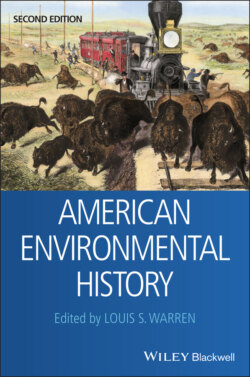Читать книгу American Environmental History - Группа авторов - Страница 39
The Manifestations of Luck
ОглавлениеLuck is the powerful force that binds humanity to the nature spirits and their moral imperatives. For the Koyukon people, luck is a nearly tangible essence, an aura or condition that is “with” someone in certain circumstances or for particular purposes. Luck can be held permanently or it can be fleeting and elusive. It is an essential qualification for success – regardless of a person’s skill, in the absence of luck there is no destiny except failure.
The source of luck is not clearly explained, but most people are apparently born with a certain measure of it. The difficulty is not so much in getting it as in keeping it. Luck is sustained by strictly following the rules of conduct toward natural things. People who lose their luck have clearly been punished by an offended spirit; people who possess luck are the beneficiaries of some force that creates it. Koyukon people express luck in the hunt by saying bik’uhnaatltonh – literally, “he has been taken care of.”
If a person has good luck, catches game, it is because something created the world, and that is helping him to get what he needs.
Luck, or the absence of it, is specific to particular animals or even certain activities. A woman who violates tanning taboos may fail in preparing hides. Each person is possessed (or dispossessed) of luck for all the entities he or she interacts with. Thus a man told me that he had always been lucky hunting bears until he inadvertently treated one the wrong way. For many years afterward his luck was gone – he never took a single bear. Finally the effect wore off and since regaining his luck he has killed at least one bear each season.
Luck can be passed along to others, but it is a lot like money. The one who gives it up may be left with nothing. To illustrate, when beaver snaring was made legal years ago, it was very hard for young people to learn how to do it. The older men knew but were reluctant to reveal their ways, because telling someone how to make a trapping set also gives him your luck. Eventually people reach an age of inactivity, when their measure of luck becomes superfluous. Then they can confer their luck on others by simply wishing it so. This is why children often present their first-killed game to elders, and why young hunters give liberal shares of their catch to old men who no longer go out onto the land.
Possessions like sleds, fishnets, rifles, or snowshoes are also infused with luck. A man lamented to me that one of his high-caliber rifles had failed to kill a bear coming out of its den although it was at close range. He had to use another gun to finish the animal. This gun was “out of luck,” he explained, and he suspected that a young woman had rendered it useless by stepping over it.
Putting on another person’s mittens can either take away his luck or give him yours. Once I was traveling with a man whose hands became painfully cold, so I offered him my extra mittens. He finally took them, explaining that since I was leaving Huslia I could get along without luck in things like trapping. But a short while later he decided to take them off and endure the cold instead.
Luck is a finite entity, specific to each natural thing or even to certain activities. It can be lost, transferred, and recovered. Luck binds people to the code of proper behavior toward the natural world. And so success in living on the land involves far more than a mastery of technical skills. It requires that a sensitive balance be maintained between each person and the conscious forces of the environment ….
